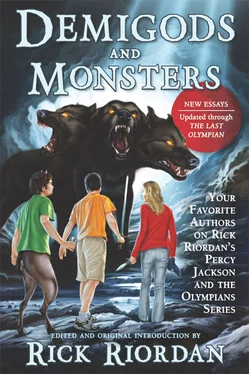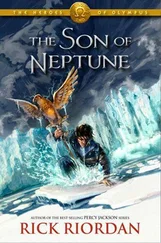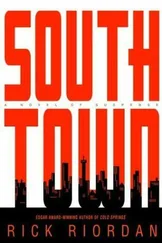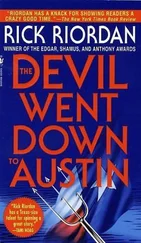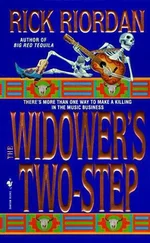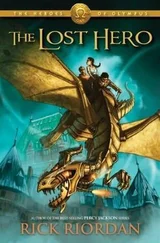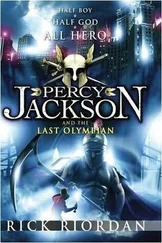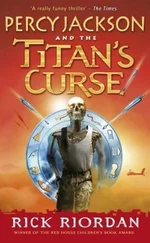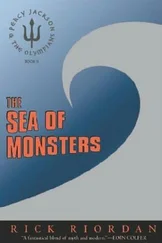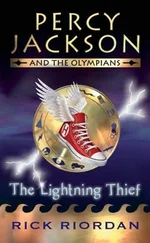The monsters’ biggest advantage—besides the obvious things like claws, teeth, poison, and superior size and strength—is that they never really die. The centaur Chiron tells us monsters are “archetypes.” An archetype is the original, basic idea of something. This means that when similar characters pop up in different books and movies, all of them are based on the original archetype. For instance, the character of “Fluffy,” the three-headed dog who guards the sorcerer’s stone in the first Harry Potter book, comes from the idea of Cerberus, the three-headed dog who guards the entrance to the Underworld. [2] Chiron wouldn’t use this example, of course, because in his world there are no such things as wizards. That would be just silly.
So monsters, like ideas, can never be killed, and they have very long memories. If you’re a hero and you encounter a magical creature, it may have been turned to dust many times over the years by heroes just like you. It would be wise to assume that it is holding a grudge and would be happy to help you along to your doom.
Percy Jackson has this harsh reality thrust upon him in no uncertain terms, and it’s an experience we can learn from: Nothing says “your days are numbered” like a Minotaur on your doorstep.
It should be noted that children of the less powerful gods aren’t going to attract as much monstrous attention as those with more powerful parents. You might think it would be “cool” if your Olympian parent was one of the major gods, but that kind of status comes with a big price tag.
Percy is the perfect example of this. Having Poseidon as his father may give him some awesome powers, but it also makes him a very high-profile target. So even if you had skills remarkable for a demigod, this in no way would guarantee you an easy time of it. [3] Just the opposite, since according to the agreement between the Big Three, you should not even exist, and lots of creatures would be trying to arrange it so you didn’t.
The world of gods and monsters is a harsh one. A hero can’t rely on his immortal parent for help. There are rules against direct interference, and it seems as though the higher in the echelon a god is, the more limited he or she is in stepping in to help. After Annabeth Chase runs away from her father’s house, her mother, Athena, helps her by making sure she meets up with an older, more powerful half-blood. Thalia, daughter of Zeus [4] See previous footnote re: unauthorized offspring.
, leads her friends almost to the safety of the camp, but when she is about to be killed by a horde of monsters, all that Zeus can do is turn her into a tree on top of Half-Blood Hill.
Ultimately it is up to young heroes to watch out for themselves. A parent or patron may be some help, but it’s the nature of the hero to have to face the monsters on his or her own.
Lesson Two: Types of Monsters
Monsters could be categorized in many different ways: by habitat, allegiance, intelligence, lethality, and so on. For the purpose of this lesson, I’ll separate them into two main types: those who will kill you on purpose—whether it’s personal, or because you’ve blundered into their lair—and those who will kill you by accident.
For the most part, monsters are very territorial; they tend to stake out a hunting ground and protect it viciously. When Percy’s brother Tyson is attacked by a sphinx in the city, it may have been just because he ventured into its territory. Notice that the fact that Tyson himself is a monster gives him no protection.
Here we see the type of monster who may have nothing against you personally but will not hesitate to kill you anyway. This may be because it is (a) guarding something it thinks you want to steal; (b) hungry; or (c) both.
Young heroes seem to encounter these types of monsters most frequently when they are on a quest, but not always. Monsters can be found just about anywhere, and if you stumble onto a Hydra’s hunting grounds, chances are that one of seven heads would eat you before you could explain that you were merely on your way to the corner deli for a pastrami on rye.
Some monsters stay very isolated from the mortal world. Percy has to go to the Sea of Monsters to encounter Polyphemus, the Cyclops shepherd with the carnivorous sheep, and Scylla and Charybdis, who between them destroy (again) the ironclad ship, CSS Birmingham , and its crew. But other creatures rely on humankind for survival. In ancient times, monsters often lived off of humans by stealing their sheep and goats (or sometimes by making off with one of their maidens). In Percy’s modern world, many monsters have moved into retail, making a living off of humans in an entirely different way.
This kind of magical creature doesn’t mean to kill you but is simply going about its business, completely indifferent to your fate. Take, for example, the chain of Monster Donut shops. They spread across the country, each of them connected to the life force of a monster. The stores multiply like Hydra heads, but whether their success actually comes at the expense of their human customers—the modern equivalent of the stolen sheep or maiden, for example—remains to be seen. [5] If we lived in the world of Percy and the Olympians, I would definitely wonder about that coffee chain with the siren on its logo, for no other reason than convincing mortal society that it is reasonable to pay three dollars for a cup of coffee is surely a plot to speed the end of Western Civilization.
Other retail ventures are more obviously dangerous, like Medusa’s shop, which Percy, Annabeth, and Grover run across in their first quest. In olden days, monsters who preyed on humans could often be found at the intersection of major roads, where there was the most traffic. Now monsters like the Medusa open shops. Mortal society used to center around the crossroads, but it now revolves around retail. Therefore, the smart hero should be careful in stores; no one wants to pay for a cheeseburger by spending eternity as a stone lawn ornament.
Monsters don’t consider death or dismemberment a flaw in their business plan. Take the Graiai, for example. Who would have thought it was a good idea to put three hags who share one eye in control of a taxicab in New York? [6] Though this would explain a lot about Manhattan cab drivers.
Since the sisters cannot pass the eye between them without a violent argument breaking out, the taxi’s only destination seems to be disaster. Yet getting heroes on their way has been the hags’ job ever since Ancient Greece.
The fact that they don’t care what it does to their half-mortal passengers shows why immortal things should never be dealt with lightly. Even when a magical creature is merely going about its business—even when, like the Gray Sisters, it is technically being helpful—it can be very dangerous.
Now we come to the monster who does in fact take death very personally. In addition to the innate hatred between monster and hero, there is another reason that some fanged, winged, leather-skinned horror might want half-bloods like Percy dead. Many monsters are servants to various gods, who keep the creatures on staff to take care of odd (and sometimes distasteful) jobs, like tracking down heroes, guarding treasure, and torturing demigods who make them angry.
Which means that if you anger one of the gods, he or she is likely to send something really nasty to let you know about it. Percy Jackson angers several gods just by breathing, so he probably feels like the whole world is out to get him. But that’s not actually true. Most of the time, several worlds are out to get him. [7] By that I mean the mortal world, the immortal world, and the Underworld. Speaking of Hades, he may have a special reason to hate Percy, but all half-bloods should be wary of him. He’s like that kid at your school who never gets invited to play with everyone else, but with superpowers and several thousand years for his temper to come to a boil. Hades is understandably cranky.
Читать дальше
